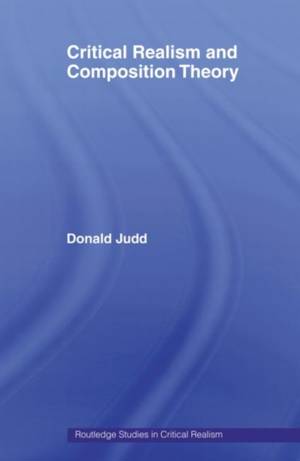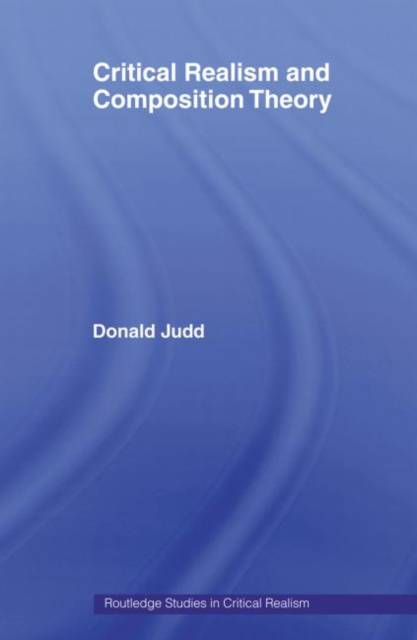
- Afhalen na 1 uur in een winkel met voorraad
- Gratis thuislevering in België vanaf € 30
- Ruim aanbod met 7 miljoen producten
- Afhalen na 1 uur in een winkel met voorraad
- Gratis thuislevering in België vanaf € 30
- Ruim aanbod met 7 miljoen producten
Zoeken
Omschrijving
The field of composition theory has emerged as part of the intellectual turmoil and set of pedagogical debates which have beset higher education for the last four decades and is now revolutionizing the theory and praxis of higher education. This volume examines three of the dominant pedagogical theories within composition theory: expressivist, cognitivist, and social-constructivist and builds its critique on the fact that much of modern composition theory has focused on epistemological concerns while neglecting the ontological foundations of that which is being discussed. Critical Realism and Composition Theory offers an alternative approach to teaching composition. This problem-oriented alternative is designed to lead students beyond the abstract, contemplative description of a problem to an expanded understanding that shows that concerns for justice cannot be addressed intellectually without at the same time confronting the practical constraints that limiting powers of social institutions play in both defining a problem and its social solution.
Specificaties
Betrokkenen
- Auteur(s):
- Uitgeverij:
Inhoud
- Aantal bladzijden:
- 174
- Taal:
- Engels
- Reeks:
Eigenschappen
- Productcode (EAN):
- 9780415524001
- Verschijningsdatum:
- 29/07/2013
- Uitvoering:
- Paperback
- Formaat:
- Trade paperback (VS)
- Afmetingen:
- 156 mm x 234 mm
- Gewicht:
- 254 g

Alleen bij Standaard Boekhandel
+ 180 punten op je klantenkaart van Standaard Boekhandel
Beoordelingen
We publiceren alleen reviews die voldoen aan de voorwaarden voor reviews. Bekijk onze voorwaarden voor reviews.











